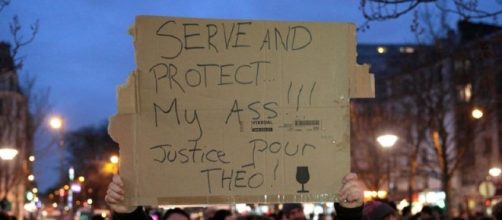Everyone loves Paris and finds it idyllic, few people know that one does not need to travel too far from the centre, where you can pay 3 euros for a coffee, to find poverty.
In fact, not far from the Saint Denis stadium, in the north of the city, you can easily feel like you are in a completely different country, where the chic boulangeries (bakery shops) and bistros become kebab restaurants and 24h shops owned by men with long white tunics.
The banlieues
In this kind of areas, the unemployment rate and the school drop-out rate are incredibly high compared to the rest of the region, and Young People feel isolated.
In these circumstances, the probability of ending up in drugs or being brain-washed by those who try to convince them that they will feel better if they join extremist groups (let´s not forget that France is one of the countries that exports more jihadists) is extremely high.
In fact, in this part of Paris, the unknown Paris, it´s not surprising to find someone who justifies the terrorist attacks that have been taking place all over Europe in the last years. These are a part of the city that nobody wishes to visit, especially not on their own.
The force corps do not help either
Far from being respected among the population, young people see the force corps as the intruders. The police presence is far from calming the situation, especially after the episode that took place on February the 2nd.
Unfortunately, this is not the first time that the corps mount an attack against the population in this area.
In October 2005, under Sarkozy´s mandate as a Foreign Affairs Minister, the police killed two Muslim young men when they tried to escape in the peripheral area of Clichy sous Bois. Consequently, some people started to protest and to destroy the urban furniture, Sarkozy´s reaction?
Describing the protesters as "scum".
A few days later the protests took place in other regions in France, from Lille to Marseille, and in other countries like Germany, Belgium, The Netherlands, Greece, or Denmark. By the 5th of November, 1295 cars had been set on fire and 312 people arrested, only in the Parisian banlieues, along with incidents in other regions.
Theo's story
Theo, a 22-year old, was presumably raped by a police officer while he was the subject of a routine identification control. After being stopped by the four officers when he went out from his home, Theo was arrested, handcuffed and obliged to sit down.
When he did so, one of the officers allegedly introduced his truncheon in Theo´s anus, according to what Theo had explained to his lawyer. Immediately, Paris, also famous by its strikes, was witness of the indignation and intolerance against the corps' actions and abuse of authority.
Unfortunately, this is not finished, Theo will need to rest for two months after what happened, then he will be able to work again. Despite this being the last episode that appears in the medias, this is not the only one, and proof of that are the marches organised in other countries like the US or the UK, where being black means having possiblies of going to jail than a white person who has committed the same crime.
From hospital, Theo sent a message to young people: 'Do not fight, let´s remain united'. Hopefully, he will be able to forgive someday.

